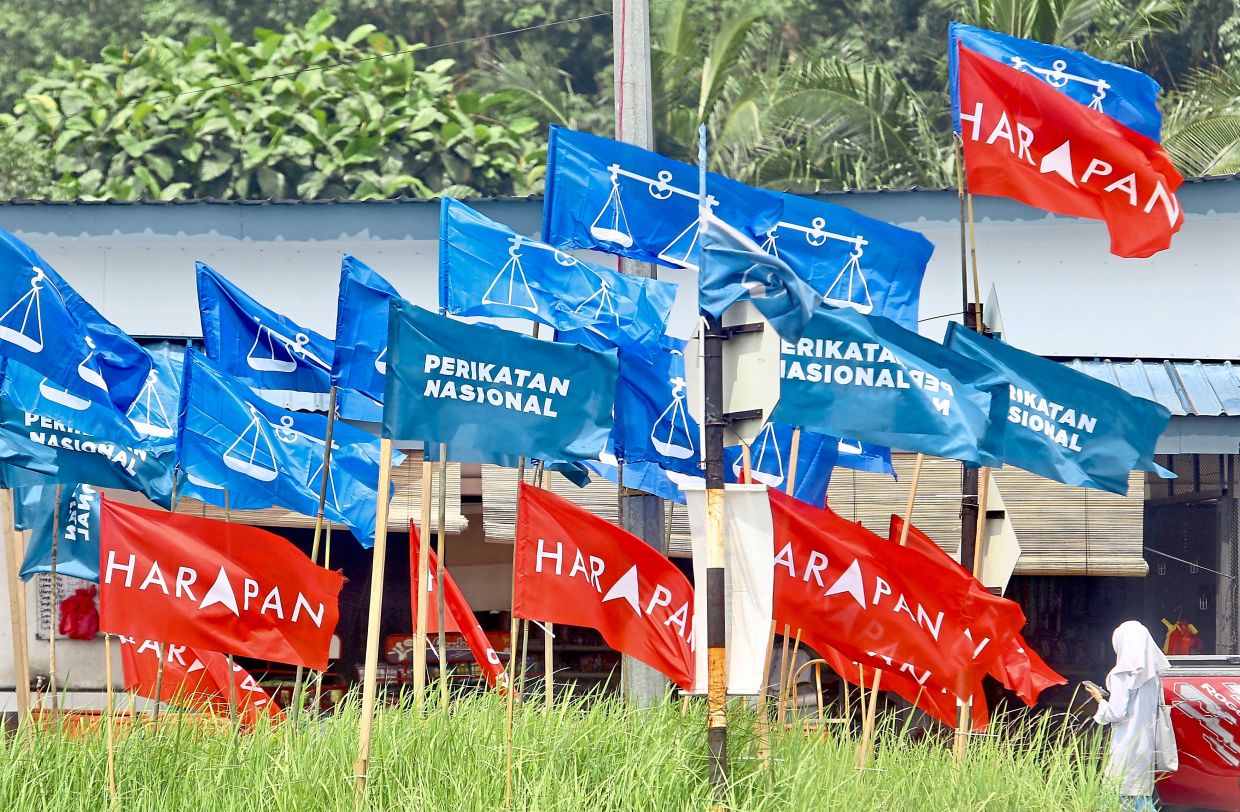
The state election will be a litmus test for the unity government and will determine whether the PKR-DAP-Barisan alliance can work together at grassroots levels. — FAIHAN GHANI/The Star
IT’S doubtless that when the elections in six states take place next month, the battleground between Pakatan Harapan and Perikatan Nasional will be jewel in the crown, Selangor.
As the most important state in the country, the results of the elections there will immensely impact the situation nationwide.
Selangor has been the stronghold of PKR – Pakatan’s lead party – for the last 15 years, or more significantly, three terms.
This time, at stake are 56 state seats, where Pakatan is expected to contest in 43 constituencies with Barisan Nasional doing likewise in 11.
This will be the first time Pakatan and Barisan, following the setting up of the Unity Government, will be working together as former rivals to thwart Perikatan.
While Pakatan still has a grip on the state, it’s evident that the coming state polls will be the fiercest ever. Voters in the Klang Valley, including Selangor, have always been pro-Pakatan, but Perikatan has been able to whittle that support, especially among Malays in the coastal areas.
Perikatan is eyeing capturing the northern part of Selangor, where most of the seats have predominantly Malay voters. The party will even want to make inroads in the southern and urban seats with strong Malay presence.
The coalition of Bersatu, PAS and Gerakan seems convinced that its Malay rights and religious narratives will work – even in Selangor.
The focus will be on Hulu Selangor, Kuala Langat, Tanjung Karang, Sabak Bernam, Sungai Besar and Kapar – all Umno strongholds until the last general election. It’s the 14 state seats that Perikatan will want to capture although not all of them were directly won by the coalition during GE15 because they were the results of split votes among the contenders.
It will be a litmus test for Datuk Seri Anwar Ibrahim as Prime Minister and the unity government, and will determine whether the PKR-DAP-Barisan alliance can work together at grassroots levels.
Umno president Datuk Seri Dr Zahid Hamidi will also have to prove that he can deliver the crucial Malay votes.

A padi field in Tanjung Karang. This former Umno stronghold is one of the state seats that Perikatan will want to capture in the upcoming polls. — The Star
While there’s consensus at the leadership level, it’s much harder to convince and persuade the working level to campaign, let alone, vote for each other after years of acrimonious relationships.
After all, just over seven months ago, both sides had hurled bitter accusations at each other on the campaign trail and now, they are expected to tell their audience that they need to support each other.
Then, there are the Umno warlords who have been left out, or expelled from Umno, who are more than ready to trade blows with their party bosses for their humiliating exits.
The wounds are still raw, and surely they can’t be blamed for their disinterest in wanting to help their party.
PAS supporters are better at taking orders from their leaders – they had no problems campaigning for DAP under the former Barisan Alternatif pact and for Umno under the Muafakat Nasional pact.
For non-partisan voters with no political allegiance, Anwar and his Cabinet members must work harder to explain to them voter issues like the cost of living and the depreciating ringgit.
The perception now is that only Anwar and a few Pakatan ministers are on the offensive.
Where are the rest of the ministers and top Pakatan leaders who should be pitching in to defend the unity government?
Even worse, some have shot themselves in the foot with their brash and ill-advised remarks and actions. Perikatan has been quick to catch them and strike, and that’s expected at this juncture.
Silence is clearly golden for the government appointed Islamic scholars against PAS, which suggests they fear challenging the Islamist party.
PAS leaders have gained ground among sections of Malays where Pakatan has compromised Malay interests because of DAP, and now, the red lines have been crossed as the politics of fear are being whipped up.
It may seem unbelievable but there are enough Malay voters who believe their interests are being challenged.
At the social media level, even PAS scholars have learnt fast and furiously as they, or their team, have bombarded TikTok with their daily messages to reach young voters.
As part of the psychological warfare, both sides have come up with purported surveys. It isn’t likely that Kedah will fall into Pakatan hands and likewise, Selangor and Penang will probably retain the status quo.
In both states, many of the seats are mixed or Chinese-majority, with the Malay-majority seats centred on Penang’s mainland, while in Selangor, there are about 30 Malay areas from the 56 seats.
In Penang, there are 40 seats with PKR holding 12, DAP 19 and Amanah two with Umno. Both Perikatan and PAS had one each, with four Bersatu state assemblymen who got booted out.
There are possible dents by Perikatan this time in these two states, but it will be difficult to dislodge Pakatan.
A pre-election survey among Malay voters in Selangor found there is no significant vote transferability between Pakatan and Barisan.
According to a study done in March by Marzuki Mohamad and Khairul Syakirin Zulkifli – published by the ISEAS–Yusof Ishak Institute – Malay voters are more likely to transfer their votes from Barisan to Perikatan candidates instead of Pakatan candidates.
A good turn-out by Chinese voters is crucial in this state polls. The community has a history of low turnout in by-elections, but their presence could be crucial here. Out-of-state and overseas voters also won’t be motivated to return home to cast their votes but will do so via postal ballots.
This certainly won’t be an ordinary state poll, but it will be fought as fiercely as in a general election. Expect the political temperature to shoot up as race and religion come into play. While the police have given ample warnings that the 3Rs – race, religion and royalty – are taboo, it’s most likely that these errant politicians will snub our police.
But it will come at a grave cost to Malaysians if this is the chosen approach.
The interests of the nation and its people are invariably more important than the selfish ambitions of the politicians.





